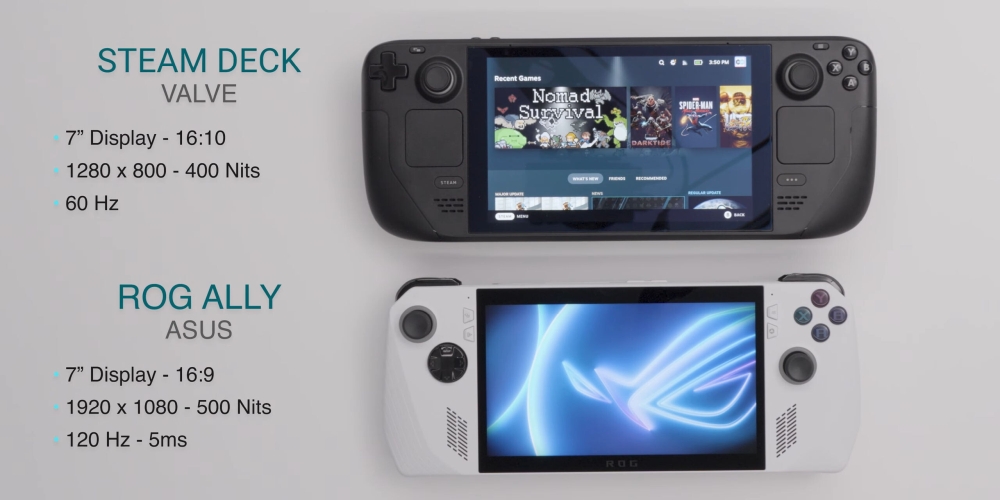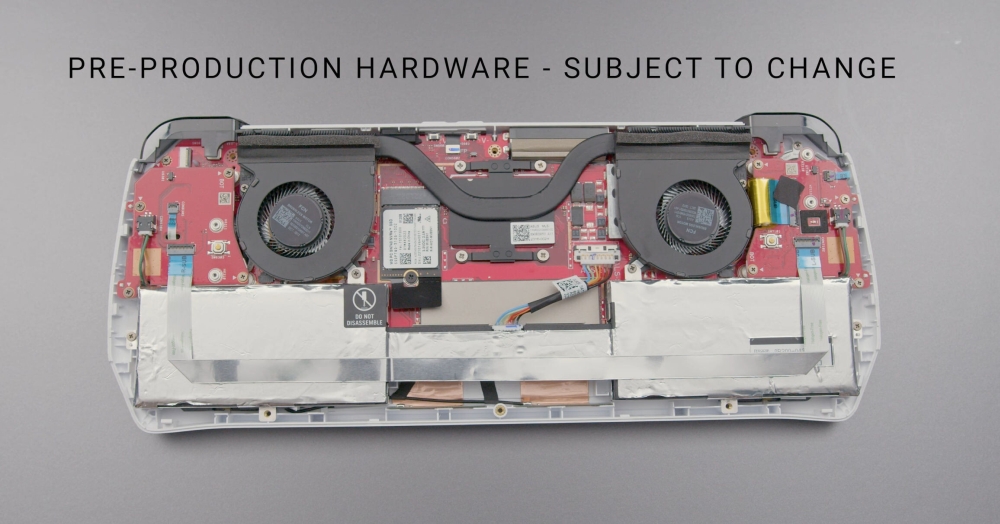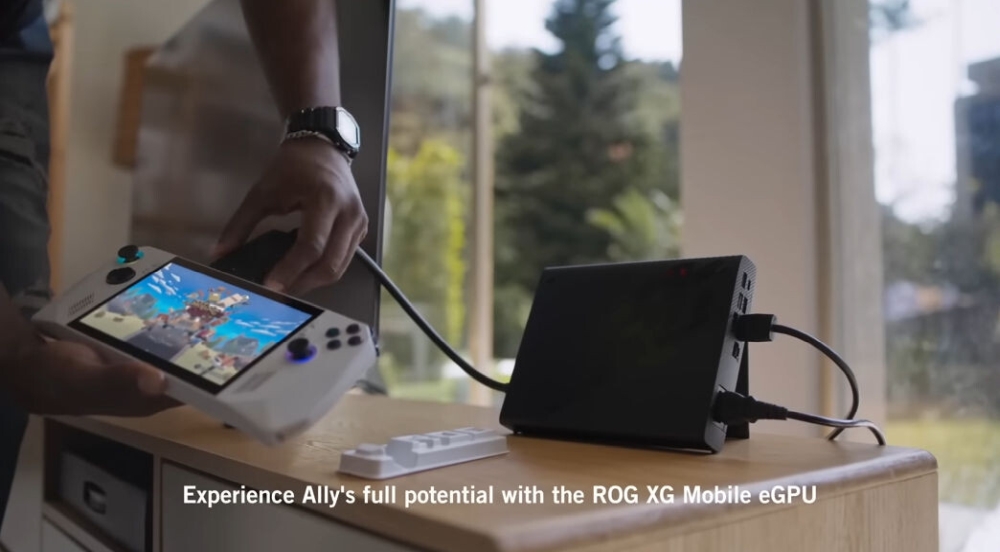In short, the Asus ROG Ally will be a beefed-up handheld console, featuring a custom AMD Phoenix APU with Zen 4 CPU and RDNA3 GPU architecture. It has a 7-inch 1080p display with 500nits of brightness and a 120Hz refresh rate. The console is a bit smaller, slimmer, and lighter, compared to the Steam Deck, measuring 280x113x39mm and weighing 608g (compared to 298x117x50.5mm and 669g for the Steam Deck).

The pictured prototype board also confirmed it will have an M.2 2230 SSD, so maximum capacity should peak at 1TB.

Asus was keen to note it has put its cooling experience into ROG Ally, making it significantly quieter than the Steam Deck, peaking at just 20dB. It comes with a dedicated PCIE Gen 3 x8 XG connector, which allows it to connect to Asus' own XG Mobile GPU, which is an external RTX 4090 Mobile graphics card that unfortunately retails at $1,999.99 in the US.

Performance-wise, Asus ROG Ally is pretty good, and, according to LinusTechTips, it should be 50 percent faster at 15W and twice as fast at 35W, compared to the Steam Deck. More importantly, it runs on Windows OS and also has support for AMD Radeon Super Resolution, which is AMD's upscaling technology that uses the same algorithm as the AMD FSR.
Linus also said that the ASUS ROG Ally will be coming to the market in the next few months, and Asus is not yet ready to reveal the price, but some rumors put it at around $680, which is close to the top version of the Steam Deck.




